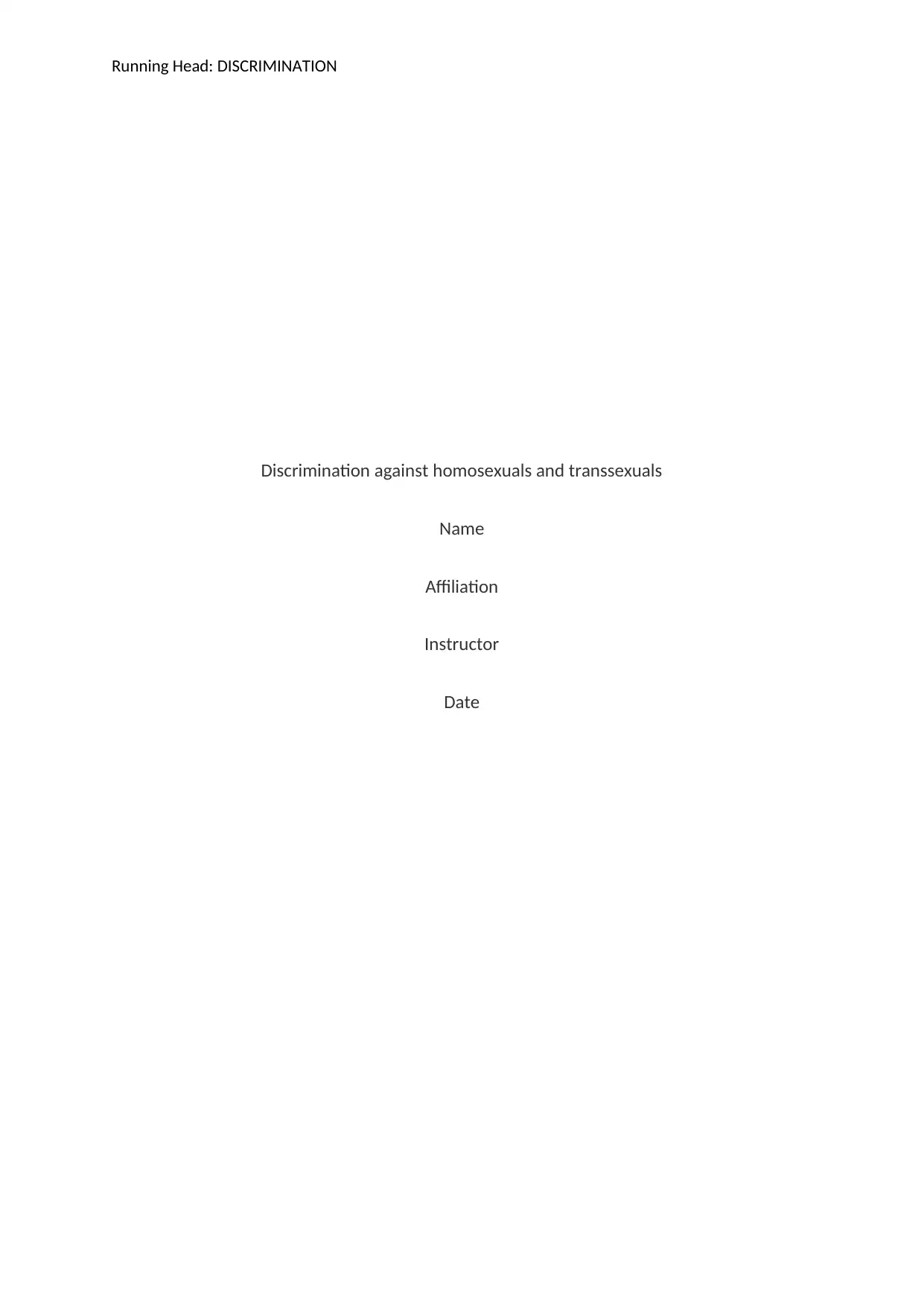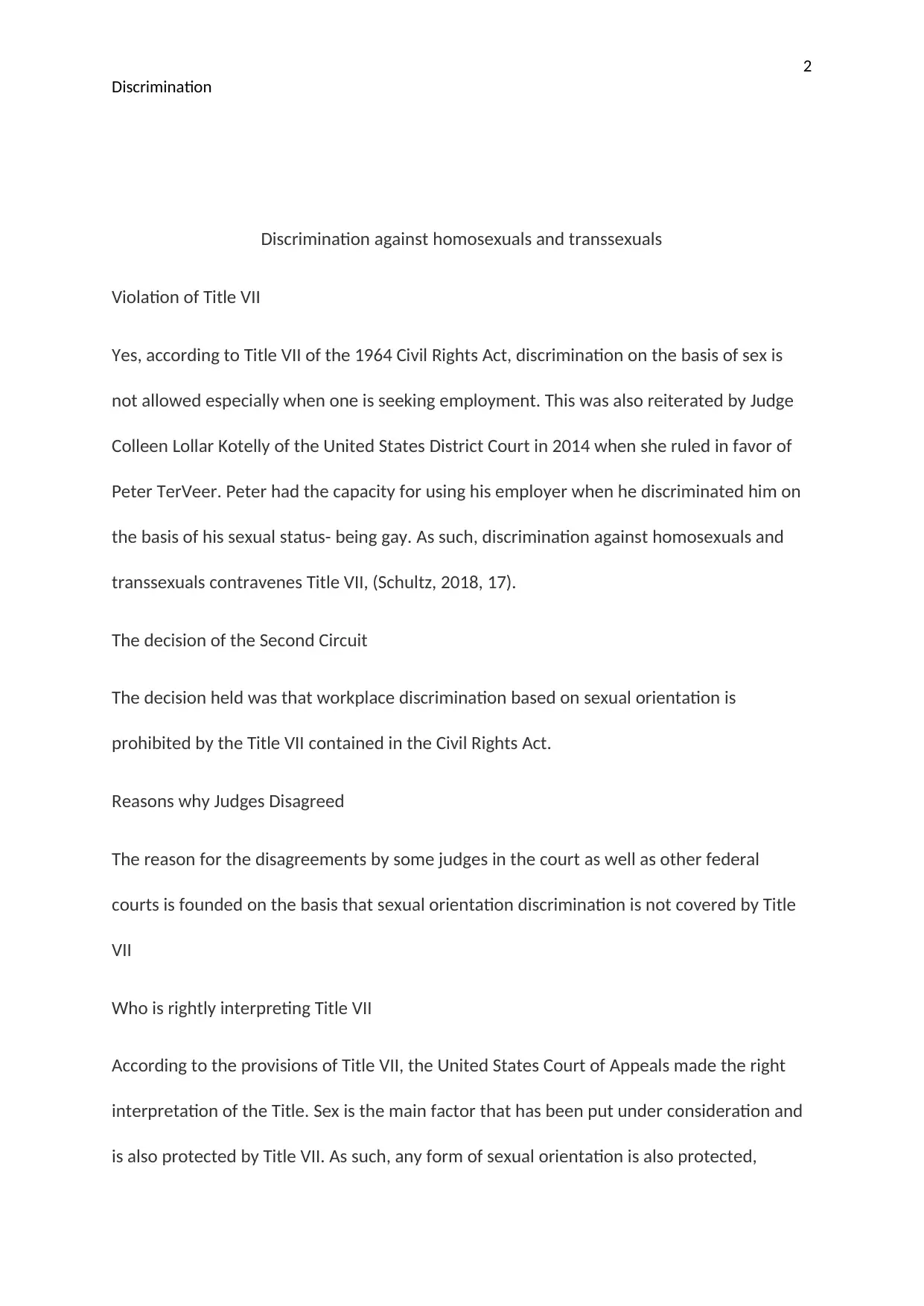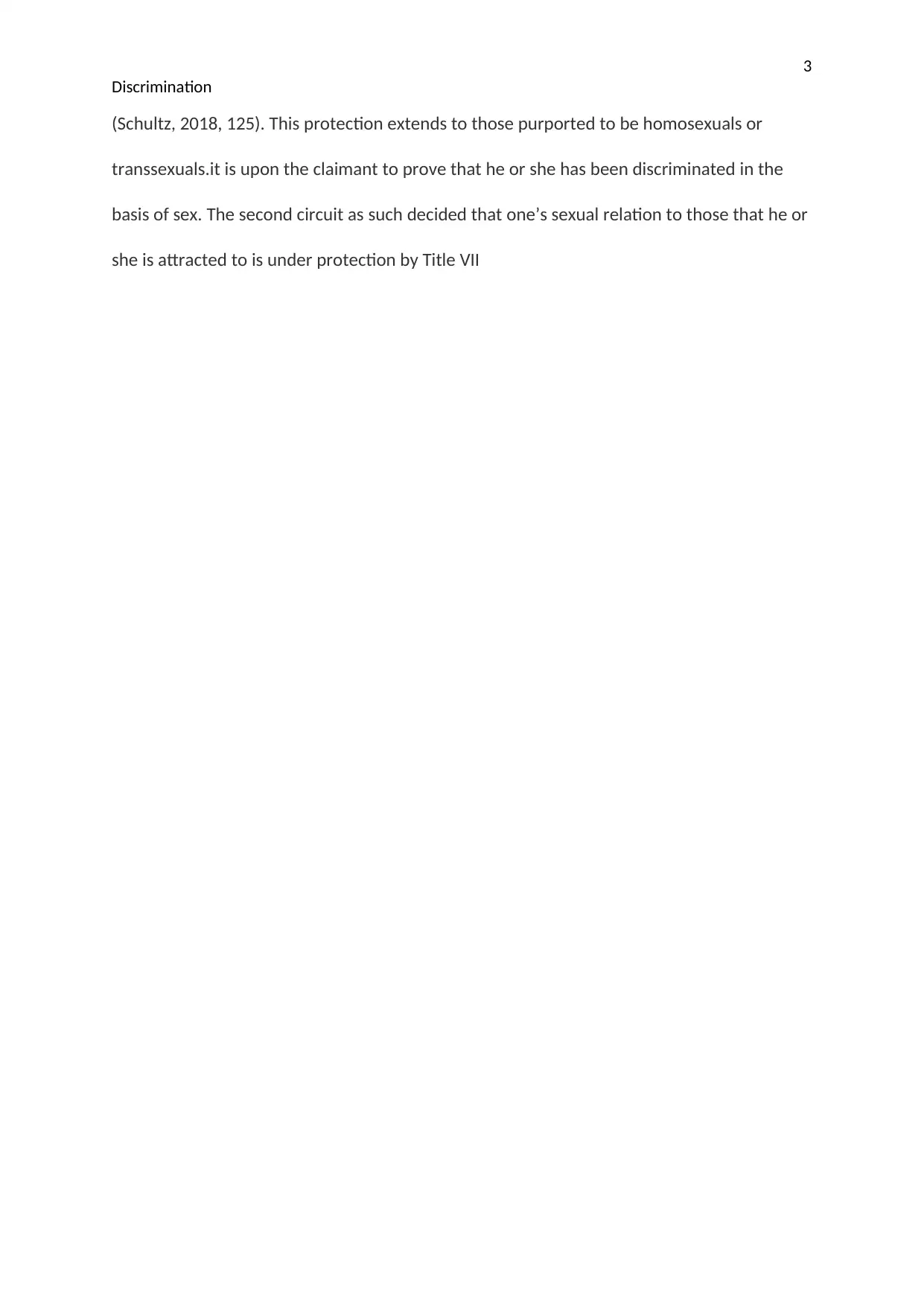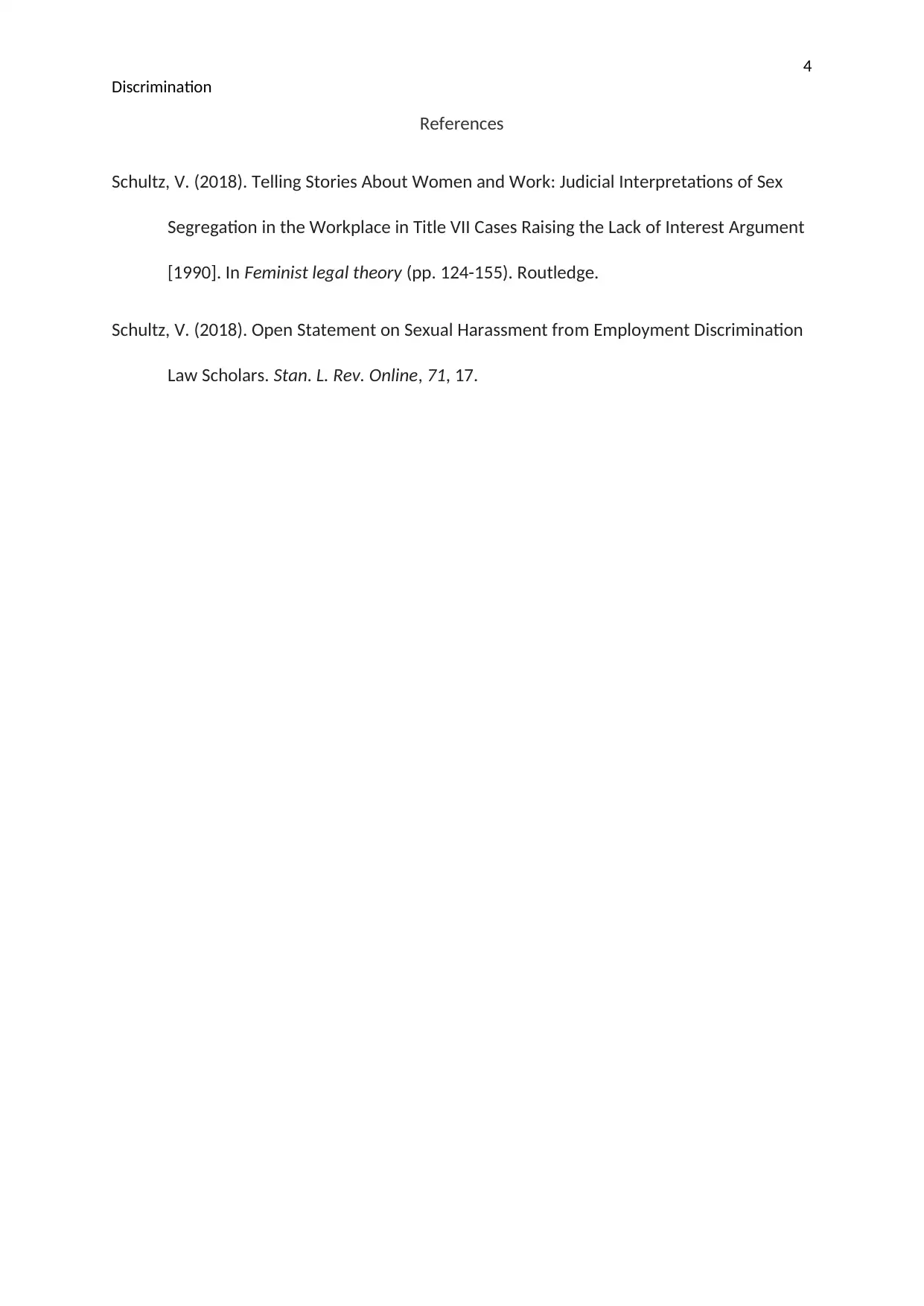Title VII and Discrimination: A Report on Homosexuals and Transsexuals
VerifiedAdded on 2023/04/23
|4
|393
|177
Report
AI Summary
This report examines the legal implications of discrimination against homosexuals and transsexuals, specifically in relation to Title VII of the Civil Rights Act of 1964. It analyzes the legal arguments and court decisions concerning workplace discrimination based on sexual orientation, including the Second Circuit's ruling. The report highlights that discrimination against homosexuals and transsexuals contravenes Title VII, which protects individuals from sex-based discrimination. The report references the viewpoints of legal scholars and the court's interpretation of Title VII, which is to protect individuals from discrimination. The report is supported by references to relevant legal literature, including the work of V. Schultz. The report concludes that the current legal framework extends protection to individuals based on their sexual orientation. This is a key area of legal discussion.
1 out of 4











![[object Object]](/_next/static/media/star-bottom.7253800d.svg)